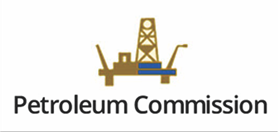Local content workshop
At the 3rd Local Content Workshop in Takoradi, Mr Faibille said transfer pricing was an unhealthy business practice as it ensured that the JV companies did not declare profit for their local partners to have their fair share.
“This practice must stop so we are working with the Ghana Revenue Authority (GRA) to bring sanity in the conduct of financial transactions in the industry,” he stated.
The workshop was on the theme: “Developing Competitive Service Providers and Personnel in Ghana’s upstream industry”.
He warned that the era of transfer pricing was over and must be stopped since local content objectives would only be achieved when procurement processes and JV agreements were not stalled in secrecy.
“You need to let the stakeholders know the scope and broad terms of your engagement. The most critical principle in maximising local content in Ghana is transparency,” he said.
The commission, he said, was of the strong view that the best way to secure a stable environment for the investor community was to deal with the regulator and other stakeholders in a transparent and legally sound manner consistent with international norms.
“By this, I mean, you must actively involve your local JV partners in all business transactions, including execution of contracts, in order to build capacity, transfer technology and skills and make them competitive. This also involves full disclosure to the Petroleum Commission,” he said.
Ghanaian participation
A Deputy Minister of Energy in charge of Petroleum, Dr Mohammed Amin Adam, said with the increase in the country’s upstream oil and gas activities, “we expect the number of local service providers and their personnel to increase.”
He added that “ we owe it a duty to develop the capacity of our people to provide competitive services.”
The government, Dr Adam said, was determined that the country would not only receive direct revenues from the petroleum operations, but create value through local content and local participation.
Strategic decision
The deputy minister said the country had, therefore, taken a strategic decision to promote the development of indigenous capabilities and the use of local capacities in the exploration of the country’s petroleum resources.
For his part, the Western Regional Minister, Dr Kwaku Afriyie, gave an assurance that companies operating in the region would be supported by the Regional Coordinating Council.




